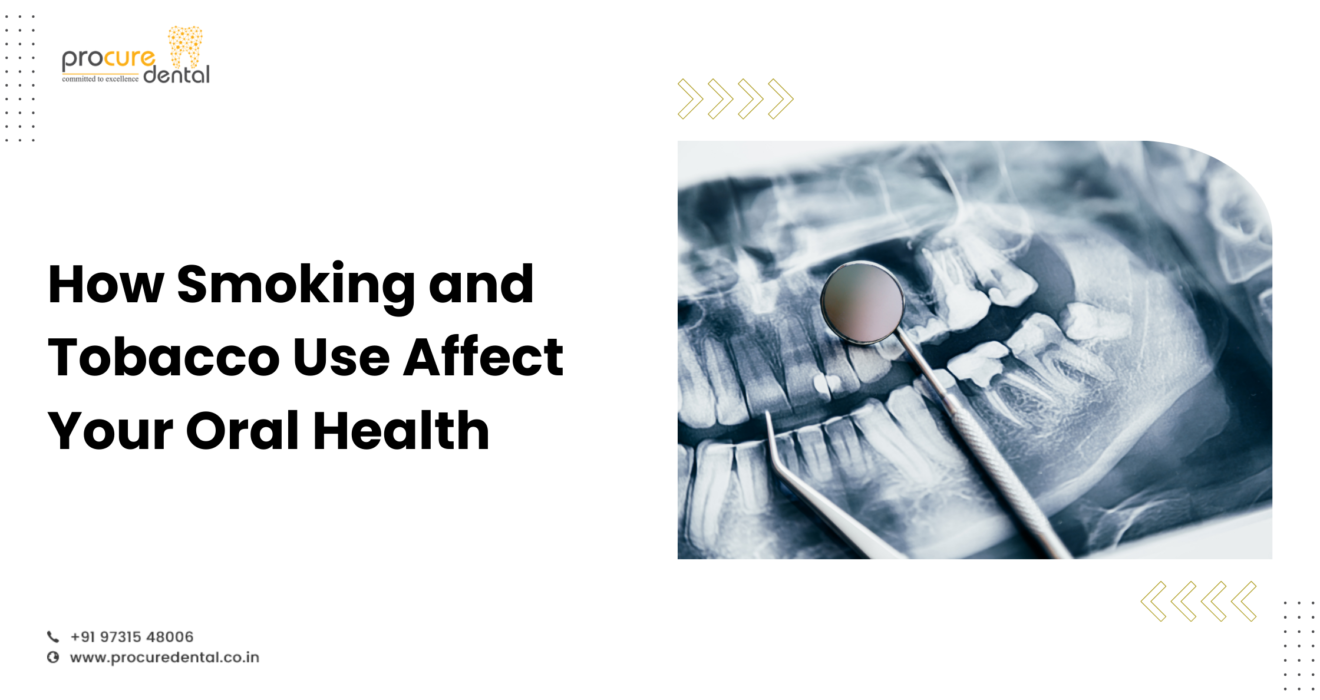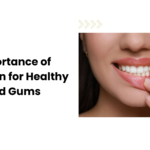How Smoking and Tobacco Use Affect Your Oral Health
Smoking and tobacco use have long been linked to numerous health issues, from lung cancer to heart disease. However, the impact of these habits on oral health is often overlooked. Your mouth is the gateway to your body, and the harmful effects of tobacco can be particularly devastating to your teeth, gums, and overall oral hygiene. Let’s delve into how smoking and tobacco use affect your oral health and why kicking the habit is one of the best things you can do for your smile.
The Immediate Effects on Your Mouth
Bad Breath and Stained Teeth
- Bad Breath: Tobacco products can cause chronic bad breath (halitosis). The chemicals in tobacco linger in the mouth, creating an unpleasant odor.
- Stained Teeth: Nicotine and tar in tobacco products can stain teeth, turning them yellow or brown over time. This discoloration is often difficult to remove, even with professional cleaning.
Gum Disease and Tooth Loss
- Increased Plaque and Tartar: Smokers are more likely to produce bacterial plaque, which leads to tartar build-up. Tartar can only be removed by a dentist and contributes to gum disease.
- Gum Disease: Smoking impairs blood flow to the gums, affecting the immune response and making it harder for gums to heal. This increases the risk of periodontal (gum) disease, which can lead to tooth loss if left untreated.
- Receding Gums: Tobacco use can cause gums to recede, exposing the roots of teeth and increasing sensitivity and risk of decay.
Long-Term Consequences
Oral Cancer
- Higher Risk: Tobacco use is a major risk factor for oral cancer. This includes cancers of the lips, tongue, cheeks, floor of the mouth, hard and soft palate, sinuses, and throat. Early detection is critical, but prevention is the best approach.
- Poor Prognosis: Smokers with oral cancer often have a poorer prognosis than non-smokers because smoking weakens the immune system and hampers the body’s ability to recover.
Impaired Healing
- Slow Recovery: Smoking slows down the healing process after oral surgeries, such as tooth extractions, periodontal treatments, and dental implants. This can lead to complications and longer recovery times.
- Increased Risk of Infection: With impaired healing, the risk of post-surgical infections increases, which can lead to further oral health problems.
Aesthetic and Functional Impacts
- Altered Taste and Smell: Smoking can dull your senses of taste and smell, reducing the enjoyment of food and drinks.
- Voice Changes: Prolonged tobacco use can lead to hoarseness and changes in your voice due to the effects on the throat and vocal cords.
- Aesthetic Concerns: Beyond stained teeth, smoking can cause other cosmetic issues such as a discolored tongue, irritated throat, and dry mouth, which can also affect speech.
The Benefits of Quitting
Improved Oral Health
- Healthier Gums: Quitting smoking reduces the risk of gum disease and improves the health of your gums.
- Whiter Teeth: While some staining might be permanent, quitting can prevent further discoloration and improve the overall appearance of your teeth.
- Fresher Breath: Without tobacco, your breath will improve significantly, contributing to better social interactions and self-confidence.
Reduced Cancer Risk
- Lower Cancer Risk: Stopping tobacco use reduces the risk of developing oral cancer and other related cancers.
- Better Prognosis: For those who have already been diagnosed with oral cancer, quitting smoking can improve treatment outcomes and recovery.
Enhanced Healing and Overall Health
- Faster Healing: Your body will heal more quickly after dental procedures once you quit smoking.
- Improved Immune Function: Quitting enhances your immune system, helping to fight off infections and other diseases more effectively.
Tips for Quitting
- Seek Support: Talk to your dentist or healthcare provider about quitting. They can provide resources, support, and possibly medication to help you stop.
- Find Alternatives: Look for healthy alternatives to smoking, such as chewing sugar-free gum, to help manage cravings.
- Stay Motivated: Remind yourself of the benefits, both for your oral health and overall well-being, to stay motivated on your quitting journey.
Conclusion
Smoking and tobacco use pose serious risks to your oral health, from stained teeth and bad breath to gum disease and oral cancer. The good news is that quitting smoking can significantly improve your oral and overall health. If you’re ready to take the first step towards a healthier smile and life, talk to your dentist and healthcare provider today. Your mouth—and the rest of your body—will thank you.



